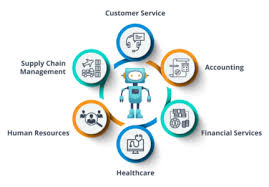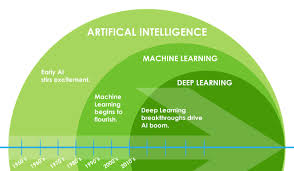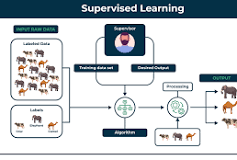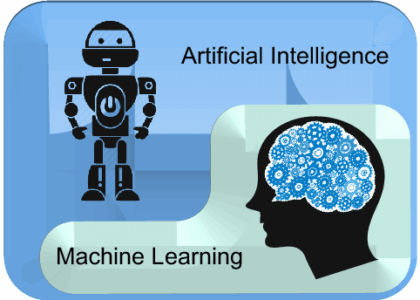Exploring the World of Artificial Intelligence Technologies
Artificial intelligence (AI) has rapidly evolved from a futuristic concept to an integral part of our daily lives. AI technologies are transforming industries, enhancing efficiency, and opening up new possibilities across various sectors. This article delves into the key AI technologies that are shaping the modern world.
Machine Learning
At the core of many AI applications is machine learning, a technology that enables computers to learn from data and improve their performance over time without being explicitly programmed. Machine learning algorithms identify patterns and make predictions, powering applications such as recommendation systems, fraud detection, and personalised marketing.
Natural Language Processing
Natural Language Processing (NLP) allows machines to understand, interpret, and respond to human language. This technology is behind chatbots, virtual assistants like Siri and Alexa, and language translation services. NLP is continually improving, making interactions with machines more intuitive and human-like.
Computer Vision
Computer vision enables machines to interpret and make decisions based on visual data. This technology is crucial in applications such as facial recognition systems, autonomous vehicles, and medical imaging analysis. By mimicking human vision capabilities, computer vision opens up new avenues for automation and innovation.
Robotics
AI-powered robotics combines machine learning with physical robots to perform tasks ranging from simple household chores to complex industrial operations. These robots can adapt to changing environments and perform tasks with precision, efficiency, and safety.
Deep Learning
A subset of machine learning, deep learning involves neural networks with many layers that can model complex patterns in large datasets. Deep learning is instrumental in advancing areas such as image recognition, speech processing, and autonomous driving technologies.
The Impact on Industries
The integration of AI technologies is revolutionising numerous industries:
- Healthcare: AI assists in diagnosing diseases more accurately through medical imaging analysis and predictive analytics for patient care management.
- Finance: AI enhances fraud detection systems, automates trading processes, and provides personalised financial advice through robo-advisors.
- Manufacturing: Smart factories utilise AI for predictive maintenance of machinery and optimising supply chain logistics.
- Agriculture: Precision farming uses AI for crop monitoring via drones equipped with computer vision technology to boost yield production efficiently.
The Future of AI Technologies
The future of artificial intelligence holds immense potential as these technologies continue to evolve at a rapid pace. The advancement in AI research promises even greater automation capabilities along with ethical considerations surrounding data privacy become increasingly important discussions within society today.
The journey towards fully realising artificial intelligence’s potential is ongoing; however one thing remains certain: its impact will be profound across all aspects shaping tomorrow’s world today!
7 Essential Tips for Navigating the World of Artificial Intelligence Technologies
- Stay updated on the latest AI trends and advancements.
- Understand the ethical implications of AI technology.
- Explore different AI applications across various industries.
- Learn basic programming skills to better understand AI algorithms.
- Collaborate with experts in the field to enhance your knowledge.
- Experiment with open-source AI tools and platforms for hands-on experience.
- Constantly evaluate and refine your AI models for improved performance.
Stay updated on the latest AI trends and advancements.
Staying updated on the latest AI trends and advancements is crucial in today’s rapidly evolving technological landscape. As artificial intelligence continues to reshape industries and influence various aspects of daily life, keeping abreast of new developments ensures that individuals and businesses remain competitive and informed. By following recent breakthroughs, attending relevant conferences, and engaging with expert communities, one can gain valuable insights into emerging technologies like machine learning, natural language processing, and robotics. This proactive approach not only aids in understanding the potential applications of AI but also helps in anticipating future challenges and opportunities that may arise from its integration into diverse fields.
Understand the ethical implications of AI technology.
Understanding the ethical implications of AI technology is crucial as it becomes increasingly integrated into society. As AI systems are deployed in various sectors, they can significantly impact privacy, employment, and decision-making processes. There is a growing need to ensure that these technologies are developed and used responsibly to avoid biases and discrimination. Ethical considerations also extend to data security and the transparency of AI algorithms, ensuring that users can trust the systems they interact with. By addressing these ethical challenges, developers and policymakers can create AI technologies that benefit society while minimising potential harm.
Explore different AI applications across various industries.
Exploring different AI applications across various industries reveals the transformative potential of artificial intelligence in reshaping traditional practices and enhancing efficiency. In healthcare, AI is revolutionising diagnostics and patient care through advanced imaging techniques and predictive analytics. The financial sector benefits from AI-driven fraud detection systems and personalised investment advice, while manufacturing sees improvements in production processes with AI-powered automation and predictive maintenance. Retailers leverage AI for personalised marketing strategies and inventory management, optimising customer experience and operational efficiency. By examining these diverse applications, businesses can identify opportunities to integrate AI technologies into their operations, driving innovation and maintaining a competitive edge in an ever-evolving market landscape.
Learn basic programming skills to better understand AI algorithms.
Learning basic programming skills is a crucial step for anyone looking to understand artificial intelligence algorithms more deeply. By gaining a foundational knowledge of programming languages such as Python or R, individuals can demystify the complex processes behind AI technologies. These skills enable one to engage directly with the code that drives machine learning models and other AI applications, offering insights into how data is processed and decisions are made. Understanding programming also allows individuals to experiment with algorithms, tweak parameters, and observe outcomes firsthand, thereby fostering a more comprehensive grasp of AI’s capabilities and limitations. Ultimately, this knowledge empowers people to not only use AI tools effectively but also contribute to their development and innovation.
Collaborate with experts in the field to enhance your knowledge.
Collaborating with experts in the field of artificial intelligence is an invaluable strategy for enhancing one’s knowledge and staying abreast of the latest developments. Engaging with seasoned professionals provides unique insights into the complexities and nuances of AI technologies, offering perspectives that are often not accessible through independent study alone. These collaborations can lead to a deeper understanding of cutting-edge advancements and practical applications, as well as foster innovation through the exchange of ideas. Moreover, building a network with AI experts opens up opportunities for mentorship, guidance, and potential partnerships on projects that can further one’s expertise and career in this rapidly evolving domain.
Experiment with open-source AI tools and platforms for hands-on experience.
Experimenting with open-source AI tools and platforms is an excellent way to gain hands-on experience and deepen one’s understanding of artificial intelligence technologies. These resources provide invaluable opportunities for learners and professionals alike to explore AI concepts without the need for significant financial investment. Open-source platforms such as TensorFlow, PyTorch, and Scikit-learn offer a wide range of libraries and frameworks that cater to various AI applications, from machine learning to natural language processing. By engaging with these tools, individuals can experiment with creating their own models, analyse data sets, and contribute to collaborative projects. This practical experience not only enhances technical skills but also fosters a deeper appreciation for the complexities and potential of AI technologies in real-world scenarios.
Constantly evaluate and refine your AI models for improved performance.
In the ever-evolving landscape of artificial intelligence technologies, constantly evaluating and refining AI models is crucial for maintaining and improving their performance. As data patterns shift and new information becomes available, AI models must adapt to remain accurate and effective. Regular evaluation helps identify any biases or inaccuracies that may have developed over time, allowing for timely adjustments. By refining these models, organisations can ensure they are leveraging the most relevant insights and achieving optimal results. This iterative process not only enhances the model’s capabilities but also builds trust in AI systems by demonstrating a commitment to continuous improvement and reliability.






